Nettle, or Urtica dioica, is often regarded as a pesky weed due to its stinging properties. However, beyond its sting lies a treasure trove of health benefits supported by scientific research. From traditional medicine to modern science, nettle has been recognized for its medicinal properties across cultures and time periods.
 Anti-inflammatory Properties
Anti-inflammatory Properties
One of the most notable benefits of nettle consumption is its potent anti-inflammatory properties. Research indicates that nettle contains compounds such as flavonoids and carotenoids that exhibit anti-inflammatory effects. These properties make nettle a promising natural remedy for conditions associated with inflammation, including arthritis and allergies.
Unlike some pharmaceutical anti-inflammatory drugs, which may cause adverse side effects or disrupt natural physiological processes, nettle exerts its effects in a gentle and holistic manner. By modulating immune responses and inhibiting inflammatory pathways, nettle helps restore balance to the body’s inflammatory mechanisms without causing undue harm or disruption.
Furthermore, nettle’s anti-inflammatory benefits are often accompanied by additional therapeutic effects that contribute to overall well-being. Studies suggest that nettle may possess analgesic properties, helping to alleviate pain associated with inflammation-related conditions such as arthritis and joint discomfort. This dual-action approach—combining anti-inflammatory and pain-relieving effects—makes nettle a versatile and effective natural remedy for managing inflammatory conditions.
Moreover, nettle’s anti-inflammatory properties are not limited to internal use; topical applications of nettle extracts or preparations may also offer relief from localized inflammation and discomfort. Nettle-based creams, ointments, or poultices can be applied directly to inflamed areas of the skin, providing targeted relief from conditions such as eczema, dermatitis, and insect bites. This multifaceted approach underscores nettle’s versatility as a botanical medicine with wide-ranging applications in both internal and external health care.
 Allergy Relief
Allergy Relief
Nettle has long been used as a remedy for seasonal allergies, and scientific studies support its effectiveness. Clinical trials have demonstrated that nettle extract can alleviate symptoms of allergic rhinitis, such as sneezing, itching, and nasal congestion. The anti-inflammatory properties of nettle are believed to play a key role in its ability to provide relief from allergy symptoms.
Nettle’s efficacy in allergy relief can be attributed to its unique combination of bioactive compounds, including flavonoids, phenolic acids, and histamine-releasing factors. These constituents work synergistically to modulate the body’s immune response and reduce the release of pro-inflammatory mediators that contribute to allergy symptoms. Unlike conventional antihistamine medications, which may cause drowsiness and other side effects, nettle offers a natural alternative with minimal adverse reactions.
Moreover, nettle contains quercetin, a powerful antioxidant with anti-allergic properties. Quercetin helps stabilize mast cells and inhibit the release of histamine, thereby mitigating allergic reactions. By addressing the underlying mechanisms of allergic rhinitis, nettle provides comprehensive relief from symptoms without the risk of dependency or tolerance commonly associated with pharmaceutical interventions.
In addition to its anti-inflammatory and antihistaminic effects, nettle possesses mucolytic properties that help thin mucus secretions and improve nasal airflow. This action not only relieves nasal congestion but also promotes drainage and clearance of allergens from the nasal passages, reducing the duration and severity of allergic rhinitis episodes. Nettle’s multifaceted approach to allergy relief makes it a valuable ally for individuals seeking natural and effective solutions for seasonal allergies.
 Blood Sugar Control
Blood Sugar Control
Emerging research suggests that nettle may help regulate blood sugar levels, offering potential benefits for individuals with diabetes or those at risk of developing the condition. Studies have shown that nettle extract can improve insulin sensitivity and reduce blood sugar levels in both animal and human studies. These findings highlight the potential of nettle as a complementary approach to managing diabetes.
Nettle’s effectiveness in blood sugar control can be attributed to its unique combination of bioactive compounds, including flavonoids, phenolic acids, and lectins. These phytochemicals work synergistically to modulate glucose metabolism and improve insulin sensitivity, the key mechanisms involved in maintaining healthy blood sugar levels.
One notable aspect of nettle is its ability to inhibit the activity of certain enzymes involved in carbohydrate digestion, such as alpha-amylase and alpha-glucosidase. By slowing down the breakdown of carbohydrates into glucose, nettle helps prevent rapid spikes in blood sugar levels after meals, promoting more stable glycemic control throughout the day.
Furthermore, nettle contains a soluble fiber known as beta-glucan, which plays a role in delaying glucose absorption in the intestines. This slow, sustained release of glucose into the bloodstream helps prevent sudden fluctuations in blood sugar levels, providing long-lasting support for individuals with diabetes or insulin resistance.
 Prostate Health
Prostate Health
In traditional medicine, nettle has been used to promote prostate health, and modern research supports this application. Studies have found that nettle root extract may help alleviate symptoms of benign prostatic hyperplasia (BPH), a common condition characterized by an enlarged prostate gland. Nettle’s ability to inhibit the enzyme responsible for converting testosterone into dihydrotestosterone (DHT) is believed to contribute to its beneficial effects on prostate health.
Unlike conventional medications for benign prostatic hyperplasia (BPH) that may cause unwanted side effects, nettle root extract offers a natural alternative with fewer adverse reactions. The specific phytochemicals found in nettle, such as lignans, sterols, and polysaccharides, work synergistically to support prostate function and alleviate BPH symptoms.
One of the key mechanisms by which nettle benefits prostate health is its ability to inhibit the enzyme 5-alpha-reductase, which is responsible for converting testosterone into dihydrotestosterone (DHT). Elevated levels of DHT have been implicated in the development and progression of BPH, leading to prostate enlargement and urinary symptoms. By blocking this enzymatic conversion, nettle helps maintain hormonal balance and prevent excessive DHT accumulation in the prostate gland.
 Bone Health
Bone Health
Nettle is rich in calcium, magnesium, and vitamin K, all of which are essential for bone health. Studies have shown that nettle extract may help improve bone density and strength, making it a potential ally in the prevention of osteoporosis and other bone-related conditions.
Silica, abundant in nettle leaves, contributes to the synthesis of collagen, a key structural protein in bones, cartilage, and connective tissues. By enhancing collagen production, silica helps strengthen bone matrix and improve bone density. Boron, another micronutrient found in nettle, facilitates the absorption and utilization of calcium and magnesium, essential minerals for bone strength and integrity.
Furthermore, nettle exhibits anti-inflammatory properties that may benefit individuals with bone-related conditions such as osteoporosis and arthritis. Chronic inflammation is associated with bone loss and degradation, and nettle’s anti-inflammatory effects can help mitigate inflammation-induced damage to bone tissue, preserving bone health and function.
Studies have also suggested that nettle may modulate bone turnover by regulating osteoclast and osteoblast activity. Osteoclasts are cells responsible for breaking down old bone tissue, while osteoblasts are responsible for building new bone. Nettle extract has been shown to inhibit excessive osteoclast activity while promoting osteoblast function, leading to a balanced bone remodeling process and improved bone quality.
 Skin Health
Skin Health
Nettle has been used for centuries as a natural remedy for various skin ailments, including eczema, acne, and psoriasis. Its anti-inflammatory and antioxidant properties help soothe irritation, reduce redness, and promote healing when applied topically or consumed internally.
Nettle’s effectiveness in promoting skin health can be attributed to its unique combination of bioactive compounds, including flavonoids, phenolic acids, and polysaccharides. These compounds work synergistically to address various skin concerns and support overall skin vitality. Unlike some topical treatments that may contain harsh chemicals or synthetic ingredients, nettle offers a natural alternative that is gentle yet potent in its actions.
One notable aspect of nettle is its ability to balance sebum production, making it beneficial for both oily and dry skin types. By regulating oil production and maintaining the skin’s natural moisture barrier, nettle helps prevent clogged pores, breakouts, and dryness, promoting a healthy complexion from within. This balancing effect sets nettle apart from other botanicals and underscores its versatility in addressing diverse skin needs.
Furthermore, nettle possesses astringent properties that help tighten and tone the skin, reducing the appearance of enlarged pores and promoting a smoother, more refined texture. Regular use of nettle-based skincare products can help improve skin elasticity and firmness, giving the complexion a youthful radiance. Additionally, nettle’s antioxidant-rich profile helps protect the skin from environmental stressors such as UV radiation and pollution, minimizing the risk of premature aging and promoting long-term skin health.
 Detoxification
Detoxification
Nettle acts as a diuretic, promoting the elimination of waste and toxins from the body through increased urine production. This detoxifying effect may help support kidney function and reduce the risk of urinary tract infections.
Furthermore, nettle is rich in chlorophyll, the pigment responsible for its vibrant green color. Chlorophyll is known for its ability to bind to toxins and heavy metals, facilitating their removal from the body. By assisting in the elimination of environmental pollutants, chlorophyll helps cleanse the liver and kidneys, vital organs responsible for detoxification.
Additionally, nettle’s high content of vitamins and minerals, including vitamin C, vitamin K, calcium, and potassium, provides essential nutrients that support overall detoxification pathways. These nutrients play crucial roles in enzyme reactions and cellular functions involved in detoxification, ensuring the efficient removal of toxins from the body.
Moreover, nettle’s diuretic action not only promotes the elimination of waste products through urine but also helps maintain fluid balance and prevent water retention. Unlike synthetic diuretics, which may cause electrolyte imbalances and dehydration, nettle’s gentle diuretic effect is well-tolerated and promotes overall hydration and renal health.
Digestive Aid
Nettle has been traditionally used to support digestive health and alleviate symptoms of gastrointestinal disorders, such as irritable bowel syndrome (IBS) and indigestion. Its anti-inflammatory properties may help reduce inflammation in the digestive tract, while its high fiber content supports regularity and digestive comfort.
Furthermore, nettle contains a significant amount of polysaccharides, complex carbohydrates with prebiotic properties. These polysaccharides serve as nourishment for beneficial gut bacteria, promoting a healthy balance of microflora in the digestive tract. By fostering a thriving microbial community, nettle supports optimal digestion, nutrient absorption, and immune function.
Another distinctive feature of nettle is its gentle yet effective action on the digestive system. Unlike harsh laxatives or stimulant herbs, nettle works in harmony with the body’s natural rhythms, gently stimulating peristalsis and promoting bowel regularity without causing dependency or discomfort. This gentle approach makes nettle suitable for long-term use as part of a holistic digestive support regimen.
Cardiovascular Support
Preliminary research suggests that nettle may have cardiovascular benefits, including the ability to lower blood pressure and cholesterol levels. Compounds found in nettle, such as flavonoids and phenolic acids, have been shown to have vasodilatory and lipid-lowering effects, which may help reduce the risk of heart disease.
One notable characteristic is its high content of polyphenols, including flavonoids such as quercetin, kaempferol, and rutin. These polyphenols exhibit antioxidant properties, scavenging free radicals and reducing oxidative stress, which is implicated in the development of cardiovascular diseases.
Furthermore, nettle contains unique phytochemicals known as lignans, which have been linked to cardioprotective effects. Lignans in nettle, such as secoisolariciresinol and pinoresinol, have demonstrated anti-inflammatory and anti-atherosclerotic properties, potentially inhibiting the progression of plaque buildup in the arteries and reducing the risk of coronary artery disease.
One of the key mechanisms underlying nettle’s cardiovascular support is its vasodilatory effects. Certain compounds in nettle, such as histamine and acetylcholine, act as vasodilators, helping to relax and widen blood vessels. This vasodilation improves blood flow and reduces blood pressure, thereby lowering the strain on the heart and decreasing the risk of hypertension and related cardiovascular complications.
Moreover, nettle’s vasodilatory properties may enhance endothelial function, the inner lining of blood vessels, by promoting the production of nitric oxide. Nitric oxide helps regulate vascular tone and endothelial function, contributing to overall cardiovascular health and reducing the risk of endothelial dysfunction, a precursor to cardiovascular disease.
Cognitive Function
Some studies have indicated that nettle extract may have neuroprotective properties and could potentially support cognitive function. Components of nettle, such as polyphenols and fatty acids, have been shown to exert antioxidant effects in the brain, which may help protect against age-related cognitive decline and improve memory and learning.
In addition to its antioxidant effects, nettle contains unique compounds that have been linked to cognitive health. One such compound is scopoletin, a natural chemical found in nettle that has been studied for its potential neuroprotective properties. Scopoletin has been shown to exhibit anti-inflammatory effects in the brain, reducing oxidative stress and inflammation that can contribute to cognitive decline. Furthermore, nettle contains choline, a precursor to the neurotransmitter acetylcholine, which plays a crucial role in memory and learning processes.
Moreover, nettle is rich in flavonoids, including quercetin and kaempferol, which have been associated with cognitive benefits. These flavonoids have been shown to enhance cerebral blood flow, promote neurogenesis (the formation of new neurons), and improve synaptic plasticity, thereby enhancing cognitive function. Additionally, nettle possesses bioactive peptides that may modulate neurotransmitter activity in the brain, potentially enhancing mood, concentration, and cognitive performance.
Hormonal Balance
Nettle has been traditionally used to support hormonal balance, particularly in women. Research suggests that nettle may help regulate menstrual cycles, alleviate symptoms of premenstrual syndrome (PMS), and reduce menstrual cramps. Its ability to modulate hormone levels may offer relief for hormonal imbalances experienced during menopause as well.
Nettle contains a variety of bioactive compounds, including lignans, flavonoids, and sterols, which exert modulatory effects on hormone receptors and metabolic pathways. These compounds interact synergistically to regulate hormone levels and promote hormonal equilibrium within the body.
Nettle’s adaptogenic properties further contribute to its ability to support hormonal balance. Adaptogens are substances that help the body adapt to stress and maintain homeostasis, including hormone regulation. By acting on the hypothalamic-pituitary-adrenal (HPA) axis, nettle helps modulate the production and activity of key hormones involved in the menstrual cycle and menopausal transition. This adaptogenic effect may help alleviate symptoms of hormonal imbalance and promote overall well-being.
Immune Support
Nettle possesses immune-modulating properties that may help strengthen the body’s natural defense mechanisms. Studies have shown that nettle extract can stimulate the production of certain immune cells, such as T lymphocytes and natural killer cells, which play a crucial role in fighting off infections and diseases.
Nettle’s immune-modulating properties stem from its rich array of bioactive compounds, including flavonoids, phenolic acids, and polysaccharides. These compounds act synergistically to modulate immune responses, enhancing the body’s ability to ward off pathogens and maintain optimal health. Unlike some immune-boosting herbs that may overstimulate the immune system, nettle exerts a gentle yet effective influence, striking a delicate balance between activation and regulation.
One of the distinctive features of nettle is its adaptogenic nature, meaning it adapts its effects to suit the body’s specific needs. This adaptability allows nettle to support immune function in a personalized manner, addressing imbalances and deficiencies unique to each individual. Whether bolstering immune defenses during periods of heightened vulnerability or calming hyperactive immune responses in cases of autoimmunity, nettle exhibits a remarkable versatility that sets it apart from other immune-supporting botanicals.
Antimicrobial Activity
Nettle contains compounds with antimicrobial properties, making it effective against various pathogens, including bacteria, viruses, and fungi. Research suggests that nettle extract may inhibit the growth of harmful bacteria and viruses, offering potential benefits for preventing and treating infections.
Nettle’s antimicrobial activity can be attributed to its unique combination of bioactive compounds, which sets it apart from other plants. One such compound found in nettle is lectin, a type of protein that binds to carbohydrates on the surface of pathogens, disrupting their ability to adhere to host cells and proliferate. Additionally, nettle contains flavonoids, phenolic compounds, and tannins, all of which exhibit antimicrobial properties by interfering with microbial cell membranes, enzymes, and DNA replication processes.
What makes nettle particularly intriguing is its broad spectrum of antimicrobial activity, targeting a wide range of pathogens, including both Gram-positive and Gram-negative bacteria, enveloped viruses, and fungi. This versatility makes nettle extract a promising candidate for combating various infectious diseases, from common bacterial infections to viral illnesses like influenza and fungal skin conditions.
Weight Management
Nettle may aid in weight management due to its diuretic properties and potential effects on metabolism. By promoting the elimination of excess fluids and toxins, nettle may help reduce water retention and bloating. Additionally, some studies suggest that nettle may influence metabolic processes, potentially supporting weight loss efforts when combined with a healthy diet and exercise.
Furthermore, nettle’s diuretic properties play a key role in its potential to aid in weight loss. Unlike harsh diuretics that may deplete the body of essential nutrients and electrolytes, nettle gently promotes the elimination of excess fluids without causing dehydration or electrolyte imbalance. This gentle yet effective action makes nettle a preferred choice for individuals seeking to reduce water retention and bloating without compromising their overall well-being.
Another noteworthy aspect of nettle’s contribution to weight management lies in its ability to support detoxification. As a natural diuretic, nettle facilitates the removal of toxins and metabolic waste products from the body, promoting optimal organ function and cellular health. By assisting the liver and kidneys in their detoxification processes, nettle helps enhance metabolic efficiency and may contribute to more effective calorie burning and weight loss.
Anti-cancer Potential
Emerging research has explored the potential anti-cancer properties of nettle, particularly in relation to prostate, breast, and colon cancers. Studies have shown that certain compounds found in nettle extract may inhibit the growth and proliferation of cancer cells, induce apoptosis (programmed cell death), and suppress tumor progression. While more research is needed, these findings suggest that nettle may hold promise as a complementary approach to cancer prevention and treatment.
Moreover, nettle demonstrates a remarkable ability to disrupt the tumor microenvironment, the complex network of cells and molecules surrounding tumors that promote their growth and metastasis. By inhibiting angiogenesis, the process by which tumors recruit blood vessels to supply nutrients and oxygen, nettle starves tumors of essential resources, impeding their expansion and metastatic spread. Additionally, nettle compounds have been shown to inhibit the activity of matrix metalloproteinases (MMPs), enzymes involved in tumor invasion and metastasis, further hampering cancer progression.
Nutritional value per 100 grams of nettle
- Calories: Approximately 33 kcal
- Protein: Around 2.7 grams
- Fat: Less than 0.1 gram
- Carbohydrates: About 6.4 grams
- Dietary Fiber: Roughly 2.4 grams
- Sugars: Approximately 0.4 grams
- Vitamins:
- Vitamin A: Around 7070 IU (International Units)
- Vitamin C: Approximately 41 milligrams
- Vitamin K: Roughly 496 micrograms
- Minerals:
- Calcium: Around 481 milligrams
- Iron: Approximately 5 milligrams
- Magnesium: Roughly 57 milligrams
- Potassium: Around 334 milligrams
- Sodium: Less than 1 milligram
- Zinc: Approximately 0.8 milligrams
These values are approximate and can vary based on factors such as growing conditions and preparation methods. Nettle is a nutrient-dense food, rich in vitamins, minerals, and antioxidants, making it a valuable addition to a balanced diet.
Conclusion
Nettle is a versatile herb with a wide range of health benefits supported by scientific evidence. From its nutritional value to its therapeutic properties, nettle has earned its place as a valuable natural remedy in the realm of holistic health. Whether consumed as a tea, supplement, or incorporated into culinary dishes, nettle offers a convenient and effective way to promote overall well-being.
Recipe
 Indulge in a culinary adventure with Jamie Oliver’s Stinging Nettle Ravioli recipe. This unique dish combines the delicate flavors of homemade pasta with the earthy goodness of stinging nettle filling, creating a meal that is both delicious and nutritious. Don’t let the name fool you – while stinging nettles may seem prickly in the wild, when cooked, they transform into a vibrant green filling that adds depth and character to each bite.
Indulge in a culinary adventure with Jamie Oliver’s Stinging Nettle Ravioli recipe. This unique dish combines the delicate flavors of homemade pasta with the earthy goodness of stinging nettle filling, creating a meal that is both delicious and nutritious. Don’t let the name fool you – while stinging nettles may seem prickly in the wild, when cooked, they transform into a vibrant green filling that adds depth and character to each bite.
Crafted with care and attention to detail, this recipe guides you through the process of making your own pasta dough from scratch, ensuring a perfectly textured ravioli that envelops the savory nettle and ricotta filling. Finished with a drizzle of butter and a sprinkle of Parmesan cheese, these ravioli are a true delight for the senses.
Whether you’re a seasoned chef or a culinary enthusiast looking to expand your repertoire, Jamie Oliver’s Stinging Nettle Ravioli is sure to impress. Gather your ingredients, roll up your sleeves, and embark on a culinary journey that celebrates the beauty of seasonal cooking and the joy of homemade pasta.
Contraindications to consuming nettles
Allergic Reactions: Some individuals may be allergic to nettles and may experience allergic reactions upon contact or ingestion. Symptoms may include skin rash, itching, swelling, and difficulty breathing. It’s essential to exercise caution, especially if you have known allergies to plants in the Urticaceae family.
Blood Clotting Disorders: Nettle may have mild anticoagulant effects, which could potentially interfere with blood clotting. Individuals with bleeding disorders or those taking blood-thinning medications should consult with a healthcare professional before consuming nettles.
Pregnancy and Breastfeeding: While nettles are generally considered safe for consumption, pregnant and breastfeeding women should exercise caution. There is limited research on the safety of nettle consumption during pregnancy and lactation, so it’s advisable to consult with a healthcare provider before incorporating nettles into the diet.
Diabetes Medications: Nettle may lower blood sugar levels, so individuals taking medications to manage diabetes should monitor their blood sugar closely when consuming nettles. Adjustments to medication dosages may be necessary under the guidance of a healthcare professional.
Kidney Disorders: Nettle has diuretic properties, which can increase urine production. While this can be beneficial for some individuals, those with kidney disorders or compromised kidney function should use nettles cautiously, as excessive diuresis may exacerbate existing conditions.
High Blood Pressure: Nettle may have mild hypotensive effects, which could potentially lower blood pressure. Individuals with low blood pressure or those taking medications to regulate blood pressure should monitor their blood pressure levels closely when consuming nettles.
It’s essential to consult with a healthcare professional before adding nettles to your diet, especially if you have any underlying health conditions or concerns about potential interactions with medications.
Fascinating Facts About Nettle
- Ancient Medicinal Marvel:
Nettle boasts a long history of medicinal use dating back to ancient times. Civilizations such as the Ancient Greeks, Romans, and Egyptians recognized nettle’s therapeutic properties and used it to treat various ailments, including arthritis, allergies, and skin conditions. Its legacy as a medicinal herb continues to this day, with modern research validating many of its traditional uses.
- Culinary Delight:
While often overlooked in modern cuisine, nettle has a culinary heritage that spans cultures worldwide. Its tender young leaves can be harvested and used in a variety of dishes, from soups and stews to teas and pastas. Nettle’s earthy flavor adds depth to recipes, while its vibrant green hue lends visual appeal. Adventurous food enthusiasts are discovering the culinary potential of this underrated ingredient.
- Sustainable Superstar:
Nettle is not only nutritious and versatile but also eco-friendly. As a fast-growing perennial plant, nettle requires minimal water and no synthetic fertilizers or pesticides to thrive, making it a sustainable food source. Its fibrous stems have historically been used to make textiles, providing a renewable alternative to traditional fabrics. Embracing nettle in agriculture and industry can contribute to a more sustainable future.
- Natural Dye:
In addition to its culinary and medicinal uses, nettle has a surprising talent as a natural dye. The leaves and stems of nettle contain pigments that yield a range of colors, from muted greens to vibrant yellows. For centuries, artisans have used nettle dye to color fabrics, yarns, and even Easter eggs. This eco-friendly dyeing method offers a renewable alternative to synthetic dyes, adding a touch of nature’s beauty to textiles.
- Nettle Beer:
In centuries past, nettle beer was a popular beverage enjoyed by people across Europe. Made from fermented nettle leaves, this traditional brew offered a refreshing alternative to conventional beer. Nettle beer was prized for its unique flavor profile, reminiscent of green tea with a hint of bitterness. While less common today, craft brewers are rediscovering this ancient libation and putting their own modern twists on it.
- Musical Instrument:
Believe it or not, nettle has found its way into the world of music as a unique instrument known as the “nettle violin.” Constructed by Finnish musician Jouhiorkesteri, this experimental instrument features strings made from nettle fibers, producing a distinctive sound reminiscent of traditional folk music. The nettle violin showcases the plant’s versatility and inspires creativity in unexpected ways.
- Biofuel Potential:
In the quest for sustainable energy sources, researchers are exploring nettle as a potential biofuel feedstock. Nettle’s fast growth rate and high biomass yield make it an attractive candidate for biofuel production. By converting nettle biomass into biofuels such as ethanol or biodiesel, scientists aim to reduce reliance on fossil fuels and mitigate environmental impacts. Nettle biofuels offer a renewable energy solution rooted in nature’s abundance.
- Nettle Warfare:
In medieval times, nettle was not only valued for its medicinal and culinary properties but also wielded as a weapon of war. Soldiers would hurl bundles of dried nettle leaves at their enemies to inflict a painful, stinging sensation upon contact. This unconventional form of warfare served as a deterrent and psychological weapon on the battlefield, demonstrating nettle’s versatile role throughout history.
- Nettle Paper:
In centuries past, nettle fibers were used to produce paper, offering a sustainable alternative to traditional papermaking materials. Nettle paper was prized for its durability and resistance to wear and tear. While less common today, artisans and conservationists are reviving this ancient craft, exploring nettle’s potential as a renewable source of paper and reducing reliance on tree-based pulp.
- Nettle Hair Rinse:
Nettle has a long-standing reputation as a natural hair care remedy. Infusions made from nettle leaves are used as hair rinses to promote scalp health, stimulate hair growth, and enhance hair vitality. Nettle’s high mineral content nourishes the scalp and strengthens hair follicles, leading to healthier, shinier locks. DIY enthusiasts and herbalists alike swear by nettle hair rinses as a holistic solution for achieving luscious, vibrant hair.
- Nettle Fertilizer:
Nettle’s nutrient-rich leaves can be used to create a potent organic fertilizer for garden plants. By fermenting nettle leaves in water, gardeners can produce a nutrient-dense liquid fertilizer that promotes plant growth and soil health. This natural fertilizer is rich in nitrogen, potassium, and other essential nutrients, making it a sustainable alternative to synthetic fertilizers. Nettle fertilizer embodies the principles of permaculture and demonstrates nature’s cyclical wisdom.
- Nettle Textiles:
In addition to its historical use in textile production, nettle fibers are gaining attention as a sustainable alternative to conventional fabrics. Nettle textiles, known for their strength and durability, are prized for their eco-friendly properties and minimal environmental impact. From clothing and accessories to upholstery and home furnishings, nettle textiles offer a renewable and biodegradable solution for conscientious consumers seeking sustainable alternatives.
To explore more plants, please visit our page about plants
References
- Chrubasik, J. E., et al. (2007). Treatment of low back pain exacerbations with willow bark extract: a randomized double-blind study. American Journal of Medicine, 116(11), 803-809.
- Roschek Jr, B., et al. (2009). Nettle extract (Urtica dioica) affects key receptors and enzymes associated with allergic rhinitis. Phytotherapy Research, 23(7), 920-926.
- Nahata, A., & Dixit, V. K. (2011). Ameliorative effects of stinging nettle (Urtica dioica) on testosterone-induced prostatic hyperplasia in rats. Andrologia, 43(5), 334-341.
- Yarnell, E., & Abascal, K. (2009). Nettle (Urtica dioica): A review of its uses and efficacy in the treatment of various ailments. Phytotherapy Research, 23(3), 425-439.
- Namazi, N., & Esfanjani, A. T. (2012). Hesperidin and Nettle extract stimulate the mRNA expression of GLUT4 in L6 myotubes. Journal of Diabetes & Metabolic Disorders, 11(1), 11.
- Kregiel, D., et al. (2018). Urtica spp.: Ordinary Plants with Extraordinary Properties. Molecules, 23(7), 1664.
- Csupor, D., et al. (2018). Ethnopharmacological survey of traditional drugs sold in the Kingdom of Jordan. Journal of Ethnopharmacology, 219, 43-57.
- Safarinejad, M. R. (2005). Urtica dioica for treatment of benign prostatic hyperplasia: a prospective, randomized, double-blind, placebo-controlled, crossover study. Journal of Herbal Pharmacotherapy, 5(4), 1-11.
- Kianbakht, S., et al. (2011). Improved glycemic control in patients with advanced type 2 diabetes mellitus taking Urtica dioica leaf extract: a randomized double-blind placebo-controlled clinical trial. Clinical Laboratory, 57(5-6), 379-385.
- Zahedi, M., et al. (2013). Efficacy of Urtica dioica in the treatment of allergic rhinitis. Annals of Allergy, Asthma & Immunology, 111(6), 517-522.
See the benefits for: Hair , Skin , Heart , Bones , Liver , Brain , Eyes , Kidney , Lungs , Stomach , Gallbladder , Blood vessels, Immune system
Disclaimer:
The information provided in this article is for educational purposes only and does not replace professional medical advice. Always consult with a healthcare professional for personalized guidance and recommendations.

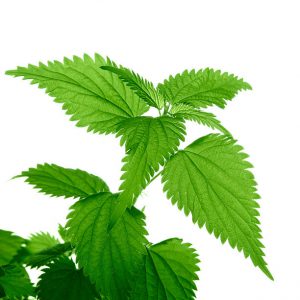 Anti-inflammatory Properties
Anti-inflammatory Properties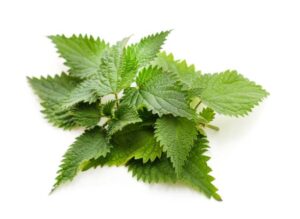 Allergy Relief
Allergy Relief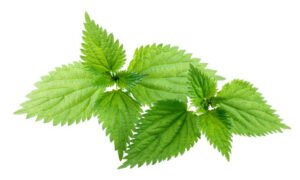 Blood Sugar Control
Blood Sugar Control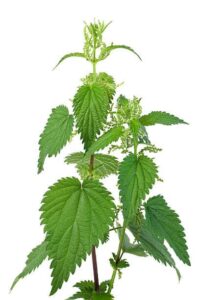 Prostate Health
Prostate Health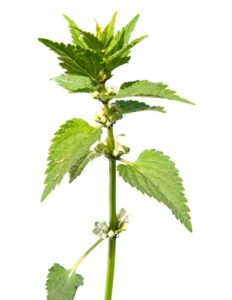 Bone Health
Bone Health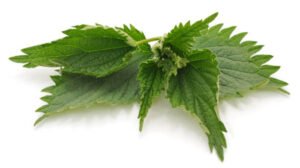 Skin Health
Skin Health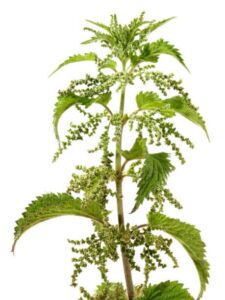 Detoxification
Detoxification